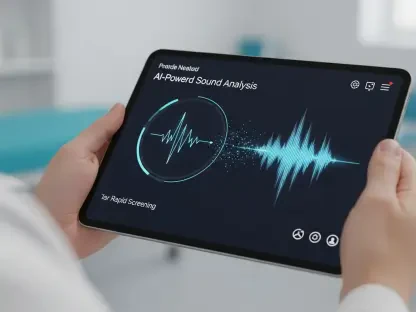In a groundbreaking shift for medical research, the United Kingdom has dramatically reduced the time it takes to approve clinical trials, cutting the average review period from a lengthy 91 days to an impressive 41 days. This remarkable achievement, driven by the integration of artificial intelligence (AI) and strategic regulatory reforms, positions the UK as a frontrunner in global healthcare innovation. The transformation not only accelerates access to cutting-edge treatments for patients but also reinforces the nation’s appeal to international researchers and companies. By blending technology with human expertise, the Medicines and Healthcare products Regulatory Agency (MHRA) has crafted a system that maintains stringent safety standards while slashing bureaucratic delays. This development signals a new era for clinical research, where efficiency and patient outcomes go hand in hand, sparking curiosity about how such rapid progress was achieved and what it means for the future of healthcare.
Revolutionizing Regulatory Processes with Technology
AI-Driven Tools Enhancing Efficiency
The backbone of this regulatory overhaul lies in the deployment of sophisticated AI tools designed to streamline the clinical trial approval process. The MHRA has introduced innovative systems like the Knowledge Hub, which aids assessors by analyzing historical data to pinpoint recurring issues in trial applications. This allows for more precise guidance to sponsors, reducing errors and expediting reviews. Another pivotal tool, the Good Manufacturing Practice (GMP) Compliance Checker, automates the verification of manufacturing documents with remarkable speed. By handling routine checks, it frees up experts to concentrate on complex safety evaluations, ensuring that no detail is overlooked. The result is a seamless workflow where technology handles repetitive tasks, and human judgment focuses on critical decision-making, significantly shortening the timeline for approvals without compromising on quality or thoroughness.
Balancing Speed with Safety Standards
While speed is a key achievement, maintaining patient safety remains paramount in the MHRA’s approach. The integration of AI is carefully paired with human oversight to ensure that every trial meets rigorous standards. A risk-based review framework, a cornerstone of recent reforms, categorizes studies by complexity and potential hazards, allowing lower-risk trials to be fast-tracked—some approved in as little as 14 days—while higher-risk ones receive detailed scrutiny. This tailored approach prevents bottlenecks and ensures that resources are allocated effectively. For instance, a trial for hemophilia A was able to start weeks earlier than expected, offering patients faster access to potentially transformative therapies. The dual system of technology and expertise creates a robust safety net, proving that efficiency need not come at the expense of caution, and instead fosters a regulatory environment where innovation thrives alongside accountability.
Impact on Patients and Global Research Landscape
Faster Access to Life-Changing Treatments
For patients across the UK, the reduction in clinical trial approval times translates to a tangible benefit: quicker access to innovative treatments that could alter the course of their lives. Conditions that once required years of waiting for new therapies to reach the market can now see solutions emerge in a fraction of the time. Health officials have underscored the importance of this shift, noting that modernizing the National Health Service (NHS) plays a crucial role in delivering these advancements directly to those in need. The accelerated process means that groundbreaking drugs and therapies move from concept to clinic faster, providing hope to individuals battling severe illnesses. Beyond individual impact, this efficiency strengthens public health by ensuring that the latest medical breakthroughs are not delayed by red tape, aligning the UK’s healthcare system with the urgent needs of its population.
Positioning the UK as a Research Hub
On a broader scale, these advancements have elevated the UK’s status as a prime destination for global medical research and investment. Regulatory leaders at the MHRA have highlighted that the streamlined processes provide certainty for planning, making the country an attractive base for international companies and researchers. The data speaks for itself—studies show that 99% of applications are reviewed within statutory timelines, with many completed well ahead of schedule. This reliability, combined with the adoption of digital innovation, sets the UK apart from other nations still grappling with slower, traditional methods. Academic insights from comprehensive reviews further validate this approach, emphasizing how risk-proportionate oversight balances speed with safety. As a result, the nation not only fosters cutting-edge research but also draws significant economic benefits, solidifying its role as a leader in the global healthcare arena.
Reflecting on a Transformative Milestone
Looking back, the strides made in reducing clinical trial approval times marked a defining moment for the UK’s healthcare landscape. The fusion of AI-driven tools and regulatory reforms achieved what once seemed impossible, slashing review periods by more than half while upholding the highest safety standards. This success was evident in the stories of patients gaining earlier access to vital treatments and in the growing interest from global researchers who saw the UK as a beacon of innovation. The journey reflected a commitment to blending technology with human insight, ensuring that every step forward prioritized patient well-being. As the dust settled, the focus shifted to sustaining this momentum—exploring how further refinements could enhance accessibility and how other nations might adopt similar models. The path ahead lies in continuous improvement, leveraging these lessons to build an even more responsive and equitable system for medical research worldwide.









